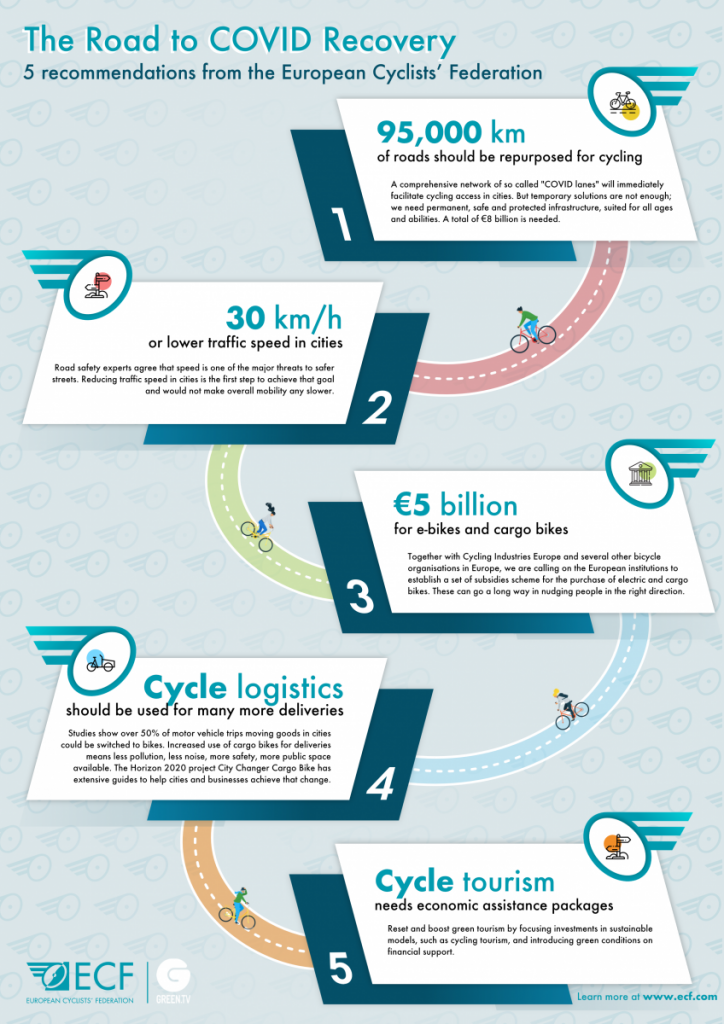June 8, 2020 - Europe cannot go back to the old normal. Now is the time to act. This is the mantra shared by decision makers at the online debate organised by the European Cyclists’ Federation in celebration of the UN-declared World Bicycle Day. See the full video of the event here.
“We need a paradigm shift. The EU needs to fund the daily mobility of European citizens through a dedicated fund for bicycles”, claimed Karima Delli, Chair of the European Parliament’s Committee on Transport and Tourism.
She was echoed by Matthew Baldwin, Deputy Director General of DG MOVE in the European Commission, who encouraged all decision makers to seize this exceptional moment and promote cycling:
“Push for the temporary [bike] lanes, put the paint on the roads and in your next sentence explain how to make them permanent. I believe there will be more money coming for the EU for cycling, but don’t wait for permission. Act now”.
Many cities are now showing strong leadership in reallocating public space to active mobility and governments around Europe are offering financial incentives to encourage cycling. But If we want these changes to be a permanent part of the post-COVID Europe, collaboration, strong political will, and concrete action will be necessary.
At the beginning of May, the European Cyclists’ Federation (ECF) issued a set of recommendations to enable the extensive benefits of cycling mobility. Jill Warren and Morten Kabell, co-CEOs of ECF, presented these recommendations that boldly call for a total of €13 billion to achieve the change we so desperately need.
Put your money where your mouth is
All panellists supported this view, making the link between priorities and investments even more visible. Miguel Gaspar, Deputy Mayor of Lisbon for Mobility and Safety, pointed out that investing in cycling is much cheaper than investing in any other mode of transport. Gaspar explained that the Portuguese capital is introducing a subsidy to support the purchase of 18,000 bikes: “The cost of this project was less than the price for one car parking spot!”
Christophe Najdovski, Deputy Mayor of Paris for Transport and Public Space and President of ECF, sent a clear message from France’s capital, where 60km of new bike lanes have been installed leading to an increase in cycling of 40%. And although Paris is making a strong case for a paradigm shift, Najdovski called for more support from the Commission:
“You have 100 times more subsidies and support to the car industry than to the cycling industry in the EU. We have to convince the European Commission that a huge investment in cycling is a huge investment in our common future”, he concluded.
This is a turning point for Europe. We know cycling will be an essential element of the post-COVID urban mobility landscape. If we want it to deliver on its potential, we must make sure it receives the right amount of investment. Luckily, we also know that every Euro spent on cycling generates many times more return on investment than any motorised mode.


















